Foods With Protein
All about benefits of protein, daily protein requirement of foods with protein, good sources of protein, healthy sources of protein, complete protein foods, incomplete protein, protein and weight loss
What is Protein? It is a nutrient that our body needs for growth and maintenance. Every organ in our body; cells, hormones and enzymes that control our body functions are made of it. Protein is responsible for blood cell formation and the production of antibodies that protect us from illness and infections. In fact, after water, it is the most abundant element in our body.
Foods with protein which we consume every day break down in the digestion process into 20 amino acids, which our body uses to create its own protein. There are 9 amino acids that are called essential, because our body cannot make them and they must come from foods we eat.
What is Complete and Incomplete Protein?
Protein is found in many foods such as meat, poultry, fish, seafood, legumes, tofu, eggs, nuts, seeds, dairy products, grains and some vegetables and fruits. Vegetables and fruits provide only a small amount of protein when compared to other sources.
There are two types of protein, which are divided according to how many essential amino acids they provide.
- Foods with protein, that provide all the essential amino acids are called high quality protein or complete protein sources. Animal proteins have the right balance of essential amino acids and are all high quality protein food sources. High quality protein sources are meat, fish, seafood, poultry, milk, eggs and dairy products, soybeans, quinoa. The vegetarian complete protein sources include dairy products, eggs, soybeans and quinoa.
 |
 |
 |
 |
 |
- Low quality protein or an incomplete protein is missing one or more of the essential amino acids. Fruit, vegetables, beans, peas, lentils, nuts, seeds, wheat and other plant foods with protein are low quality proteins.
 |
 |
 |
 |
 |
People who do not eat meat should consume different types of plant protein together in one meal or on the same day to get the right balance and the amount of essential amino acids that the body needs. For example: lysine is a low amino acid found in grains as well as other amino acids such as methionine and tryptophan which are limited to legumes. Grains eaten together with legumes will give you complete protein, as the low levels of lysine are offset by high levels of it in legumes and poor methionine and tryptophan levels in legumes are compensated by their high levels in grains.
To make complete proteins, combine foods from any two of the following groups:
Legumes: beans, lentils, peas, peanuts, soybeans.
Grains: barley, corn, oats, rice, rye, wheat.
Nuts and Seeds: pumpkin, sunflower seeds, walnuts and pecans.
Adding eggs, dairy products, meat, fish, seafood and poultry to the plant groups above will make a higher quality protein.
See more foods with protein for vegans and vegetarian protein sources.
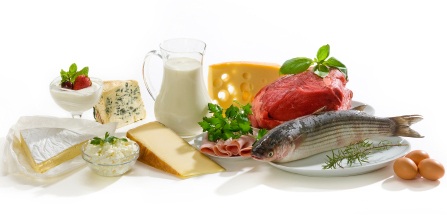
Daily Protein Requirement
There are 4 calories in 1 gram of protein. Our body uses protein for repairs and to maintain body tissue. If we eat more protein than we need to maintain our body functions, then it is used for energy, but if we do not use this much energy it is stored in the body as fat, so there is no added benefit in eating extra protein as our body cannot store it. A lack of protein in our diet will result in the slow breaking down of our own tissue, which will result in reduced muscle mass, decreased growth, low immunity, and a weakened heart and respiratory system.
Daily protein requirements are individual and depend on your body size and special needs. Children, pregnant and lactating women, the elderly, anyone undergoing severe stress like trauma, hospitalization, surgery need more protein. The recommended daily allowance (RDA) is the minimum protein needed to fulfill needs in 97.5% of the population and this value is 0.8 grams of protein per kilogram of body weight per day.
For the individual who is going through endurance training, needs 1 to 1.2 grams per kg per day, as they build their muscles from protein and it is used more efficiently.
Here's how you can calculate your individual recommended daily protein intake:
Person’s weight (in pounds)/2.2(pounds per kilogram)
Example:
Persons weight =160 pounds
163 pounds/2.2 pounds per kilogram = 74 kilograms
74 kilograms x 0.8 grams per kilogram = 59 grams per day
An easier but rough method of the calculation:
163 pounds x 0.4 = 65 grams per day
What are the Healthy Protein Sources?
To meet your daily protein needs without getting extra cholesterol and fat, choose lean cuts of meat and skinless chicken. Oily fish are rich in omega 3 fatty acids. Cooked grains and legumes are a low fat and inexpensive source of protein. Nuts and nut butters are high in fat though they don’t contain any cholesterol. Eggs are high in cholesterol but moderate in fat. Dairy products not only provide protein, but are also rich sources of calcium, necessary for bone health. Choose low fat or non-fat dairy products that do not contain bovine growth hormone (rBST). For people who are lactose-intolerant the best alternative is lactose free milk, yogurt and hard cheese.
How About High Protein Supplements?
There is no need for protein supplementation if you are eating a balanced diet with animal protein sources. Supplementation is proven to be useful for elderly people who cannot eat enough foods with protein or people with diseases that leave them malnourished. Anyway, you need to talk to your doctor first if you are considering protein supplementation.
Who Should Limit Protein Intake?
People with kidney disease should limit their protein intake and follow a low protein renal diet or even a no protein diet, which might help to delay the progression towards kidney failure.
Protein for Weight Loss
A low fat high protein diet is found to be very beneficial for weight loss. Including foods with protein into every meal you eat will help you to feel fuller for longer and lose weight without hunger.
In 2016, research was presented at the Society for Endocrinology, which showed that an amino acid, phenylalanine, which is present in protein, can aid weight loss. The test, conducted on mice and rats, showed that it increases the levels of a hormone which suppresses appetite, and decreased levels of another hormone, which makes us hungry. The mice that received the amino acid, all lost weight and also became more active.
You Might Also Like:
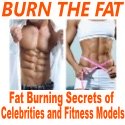 Fat Burning
Fat Burning Secrets |
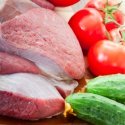 Fat Burning
Fat Burning Foods |
 The Best Time to
The Best Time to Exercise to Burn More Fat |
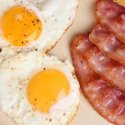 Atkins Diet
Atkins Diet Plan |
Want To Learn More?
Like This Page?
|
Share This Page:
|
Search Our Site:

Free E-Book:
We Recommend:
Looking to get your body into great shape? Get the very best results for your efforts and money! Save your valuable time from surfing the internet. These are theBestselling Weight Loss Programs
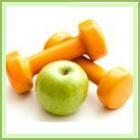
Programs that work and have thousands of satisfied customers worldwide!

 |
Fat Loss 4 Idiots
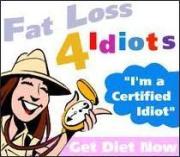
Imagine losing in just 11 days up to 9 pounds in weight. You’ll learn how to ensure your metabolism keeps going so your body loses more fat.
